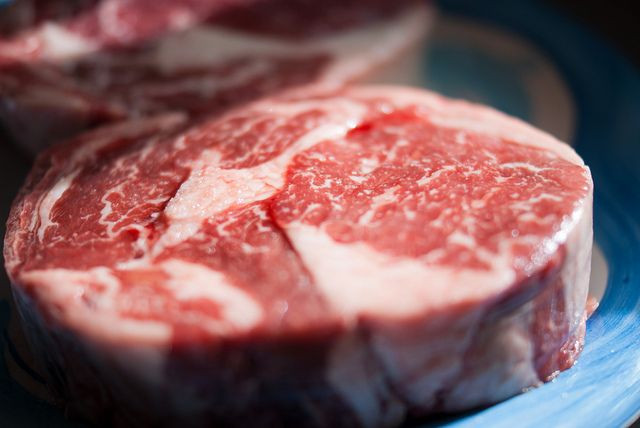Meat Consumption And Production Could Ruin Everything: Eating Livestock Puts Humans And The Environment At Risk, Say Researchers

As the rich become richer, so does their diet. They’re no longer satisfied with eating McDonald’s and other cheap forms of food. They want more meat and are willing to pay more money for the higher quality stuff. Over the past decade, demand for livestock-based food has soared to epic proportions. This could have a serious effect on the environment and our way of life, if a new article is to be believed.
“The Sustainability Challenges of Our Meat and Dairy Diets” was recently published in Environment: Science and Policy for Sustainable Development, and it looks into the long-term effects our obsession with meat consumption and production has on the animals, the climate, economics, and more.
"Over the coming years livestock product consumption could soar as more people become wealthier," said the article's co-author, Tim O'Riordon. "A vital role for science is to inform and help consumers to switch to healthier non-livestock related diets.”
Both O’Riordon and co-author Susan Stoll-Kleemann urge that diet-altering awareness is needed to help save the environment and the health of global individuals. That means, even as humans get wealthier, they need to cut down on the livestock-based products they enjoy so much. This means going back to what our ancestors ate: more grains and vegetables.
"An important general lesson from this article is that the livestock sector has such deep and wide-ranging environmental and social impacts that the topic of shifting diets… should rank as one of the leading focal themes for sustainability policy," Stoll-Kleemann said. And she’s right. Anti-smoking laws took years to come into effect. Changing the diets of schoolchildren around the world has been an uphill battle since it was begun.
It’ll be interesting to see how humans attempt to change their diet moving forward. If more people are made aware of the impacts our consumption of livestock-related foods has on our entire planet, maybe they’ll change. O’Riordon and Stoll-Kleemann are hopeful, as they explain in their paper, especially in India and parts of Europe. Most of India is already vegetarian or vegan, while more and more educated Europeans are deciding that vegetarianism or veganism are much better solutions to being a carnivore.
Does this mean you have to become a vegetarian tomorrow or else the world will turn into a terrible, gaseous wasteland from which there is no return? No, not really. You should probably just cut back on the steaks, pork chops, bacon-egg-and-cheese sandwiches, etc. That way, you’re helping the environment and actually helping yourself in the process.
Published by Medicaldaily.com



























